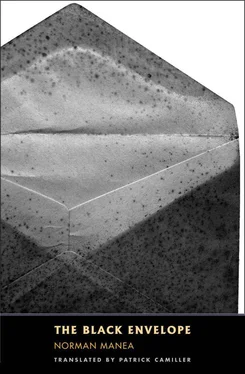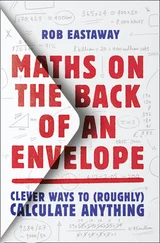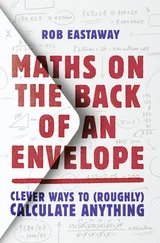It was not obvious when she let herself be carried away by the nightmare — as if the script and the role had been rehearsed so much that she no longer needed anyone else to take part.
“In fact, he even talked of divorcing his wife. No one at that strange institution guessed anything. But my family knew. Then Father gave me the ultimate weapon. They knew each other too well — so I was in a position to act the great rejection scene, with a plausible scenario. That is, I presented him with a surprise. I told him I couldn’t agree to making things ‘permanent,’ whether legally or otherwise. Not because of the age difference or because I didn’t like the partner. Those were not insignificant reasons, of course, but they could have been disregarded in our little play with so many obscure codes. No, what I said was that I had heard about his activities during the war. It came as a bolt from the blue, as I expected, but at the same time did not expect. He was stunned. He knew from where I’d found out about his great secret. In captivity, before assuming an identity more in keeping with the new times, he had already begun another operation — the operation of replacing his own self with the expedient one. Substitute men, like substitute bread, clothing, or books, weren’t invented today or yesterday.”
She was no longer smoking. Paradoxically the intensity calmed her down. The intensity did not come from the telling of her story— not at all. It was as if the acute hidden terror, huge and always there, was appeased by the very facts that she related. As if the unknown which had always terrified, and of course still terrified, her lurking vulnerability became bearable when it took on concrete shape.
As if reality, however terrible it proves to be, is much more ambivalent, more soluble, than the terrors you imagine or expect.
“In the camp, because they were prisoners of war — of the anti-Soviet war — they were each given two little cubes of jam a day on one slice of bread. He was struck off to supervise the operation. Well, seeing how overpassionate he was getting about me, Father eventually told me the whole story. As a final weapon for putting pressure on him — dangerous, of course, like everything else concerning him. His whole being was one of darkness and masks. Father had kept clear of him after witnessing his rapid rise in postwar politics — quite spectacular during the early years. Nowadays, in comparison, he was pretty low down the hierarchy, important only because of the obscure and extraordinary contacts, both old and new, that he had with the network.
“So anyway, he’d guarded the starvation rations in the camp. And he made sure he raked off the customs duties, so that he and a few others could survive.”
She had taken her hands from under the sheet and stretched them out to him, relaxed and parallel to each other. Small, pale, childish hands. The sleeplessness of a feverish night, pleading to be cured. Hungry, delving green eyes, darker and darker, pleading to be cured. The sheet creased up, like her sad mouth parched by expectation. The ball of linen was cast aside, the embrace sighed— self-abandonment and tears.
Much later, after night had come, she regained her thick, disconsolate voice.
“He’s someone given an early start in skulduggery, this fellow creature of ours. Evil as a chance for survival. So I hit him where it really hurts. But he took the blow and he’s still getting along okay, with the same thirst for life as we have, no? What do they want to prove to us, over and over again? That we’re evil, or treacherous, or weak-willed? And that we’re really like a bunch of saints, after all — is that what we keep proving? Hunted rebels, apprentices in illusion! Sick people thrashing around in the ephemeral and the precarious?”
During the night she had twisted again in the same impotent whining. But what if she herself is also an unconscious … perhaps she, too, is … He had left with the weight of that last string of words. Sick people caught in the ephemeral and the precarious. There would be time enough in the future to keep turning them around and around, professore . Each new May bends differently the wind of those dubious questions, so like our dubious times. You should have had the patience to follow your suspicions, professore ; you wouldn’t have got bored! Or the boredom — the worst affliction of all, as you are fond of saying — might well have diminished. You would have kept meeting new knots and traps; events would have doubled and tripled their appearance; you would have been rewarded for your patience.
It may be that the episode would have acquired a name, a direction, if you had not been able to find a suitable train to escape on. But you would have needed patience, curiosity, and a certain modesty, professore . The modesty of dialogue and of its dangers, professore .
You might not have been bored in its syncopations and snares. You would have found that the beginning of a new day brings back the same wrinkled plaster face called Orest, the same phantom quietly waiting at each gong of the calendar to remind you of the cave in which you crawl.
Time macerates all obsessions, as you well know, professore . Even Comrade Orest Popescu grows weary under the omnipotence of time: the passion becomes mediocre while the hatred becomes a routine, a kind of mimicry necessary to keep up appearances.
“You ask why I don’t find another salary, another job, another town. It would be possible, no doubt. Things aren’t like in the fifties anymore. Yes, I’d find a job all right. Even if he continued to hunt me with his legion of professionals, cunning and vengeful as he is. But I, too, have the right to see the play till the end — now, when it has got so unclear and threadbare. Something real and concrete — it helps you to think more constructively! I find I can follow the scale of the degeneration better if I have a goal that I know in detail. Then I have something in flesh and blood that is immediate and accessible. And above all, ambiguous. Is this also where the sense of the abyss appears? In the ambiguity which makes us accomplices, which always holds out to us the mirror and the trap? So as to demonstrate the precariousness of it all? To humiliate us? By delivering us, O Lord, to guilt and despair and our surfeit of weaknesses — by destroying us, destroying us.”
You see, professore , our fellow creatures are wary of talking about fear and suspicion. Not about boredom, though, as you well know and exemplify every day. Like that, you would also have discovered their painful interpenetration, called Irina. Women keep reminding you of something always put off and always hurt, as your friend Marga would say. Vampires, grasping claws, fetters, fly traps, chain loops, wedding rings — you remember how you used to educate your young companions about their future women partners. No precautions of any kind, Professor? Didn’t you take the simplest precautions demanded by the suspicion that already surrounded you and would soon be used to punish your insolence. Actually, there were better strategies than the one of hawking the same old sarcasms to show you feared nothing because you respected nobody. You’re still doing it now, this wet evening, in the dusty compartment of the train carrying you back from your mini-mini-break. The haughtiness, the spleen, the pipe, and the little silk bag, your airs and graces with your humble fellow passengers — the same old masquerade.
Look, after Mr. B  n
n  ¸teanu’s divorce and after old Eusebiu’s divorce and between one divorce and another and one marriage and another, the ghost Irina reappears. She comes close, very close, but never close enough to try to make you connect, as our Dr. Marga still hopes. Her stern, delicate face concentrates a kinetic energy in which you could finally become entangled and even, in Marga’s view, be cured. Listen again to the echo of that other age, feel the pain once more, like that time when you crashed to the ground from the glistening handlebars of adolescence.
¸teanu’s divorce and after old Eusebiu’s divorce and between one divorce and another and one marriage and another, the ghost Irina reappears. She comes close, very close, but never close enough to try to make you connect, as our Dr. Marga still hopes. Her stern, delicate face concentrates a kinetic energy in which you could finally become entangled and even, in Marga’s view, be cured. Listen again to the echo of that other age, feel the pain once more, like that time when you crashed to the ground from the glistening handlebars of adolescence.
Читать дальше

 n
n 










